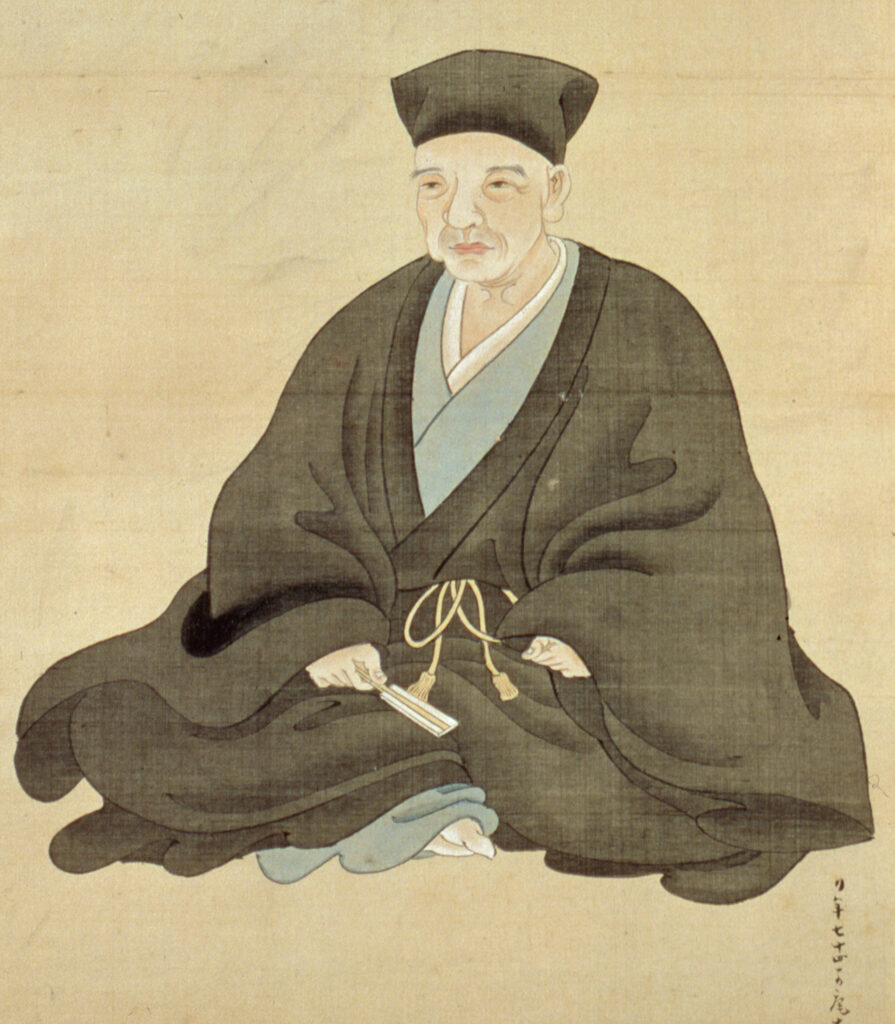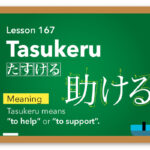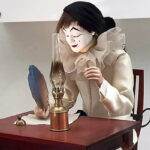

千利休 Sen No Rikyu
1522 – 1591
“Master of Hospitality, Who Succeeded with Tea”
“Tea” is an essential beverage in Japan. While many people keep bottles of water in their fridges, people in Japan stock bottles of tea to drink daily. Tea has various flavors and varieties, but “Matcha” apparently is the most well-known tea around the world. Japanese Matcha flavored snacks are popular too. Sen No Rikyu is a famous historical figure who has mastered the “Tea Ceremony (Sadō in Japanese),” one of the traditional cultures of Japan. Rikyu was a tea master who worked under Oda Nobunaga and Toyotomi Hideyoshi to serve them tea, and he also had a great influence to intervene in politics.
Rikyu was born in Osaka in 1522 as the son of a famous fish store in the town. He began to learn about tea ceremonies when he was a teenager, for his father wanted Rikyu to have dignity and good manners. He loved learning about tea so much that he never skipped a tea class.
What Is the Tea Ceremony?
The tea ceremony is called “Sadō” or “Chadō” in Japanese. Its purpose is learning to respect others by quietly making and enjoying matcha in beautiful nature. A host invites people to a small tearoom and welcomes them with homemade tea and snacks to spend time together. When making tea, there are some strict rules to follow, such as the order of tools to touch, and how to place your feet when walking into the tearoom, and each rule holds a special meaning. In addition, the host has to carefully clean the tearoom and tend the garden before the guests come. The host also is expected to amaze guests with seasonal flowers and pretty tea confectioneries. Guests attend the tea ceremony with the utmost courtesy to show gratitude to the host. The tea ceremony tradition has been passed down to Japanese traditional culture to today. In Japanese high schools, students learn this in schools or club activities. In the tea ceremony lessons, students can also learn ceramic art, flower arrangement, architecture, painting, eating and drinking, socializing, etc. for they are a part of the tea ceremony.
Rikyu’s Teaching Made Japanese People Value Humbleness
When the tea ceremony was first introduced to Japan, it was only for the rich people or nobles. They enjoyed expensive tea with valuable teacups in a gorgeously decorated luxury tearoom. The tea ceremony gradually became popular among the general public during the Muromachi era, so Rikyu and his masters devised an enjoyment of drinking tea in a small and simple room, using inexpensive tools. This concept is called “wabi-sabi,” which means to find beauty in every aspect of imperfection. “Wabi-sabi” spirit is one of the most important aspects that Japanese people hold. Japanese people are humble because of the teaching of “wabi-sabi.”
Cleaning the Tombstones While Weeping
Rikyu had lost his father and grandfather at the same time in his late teens. Sadly, Rikyu’s family was too poor that they didn’t have enough money to hold a funeral, so Rikyu depressingly cleaned their tombstones instead. This was probably the worst point of Rikyu’s life; however, Rikyu didn’t skip tea ceremony classes. Rikyu loved learning about the tea ceremony and enjoyed it so much, and he also had a talent for business. He made a lot of money by selling tea ceremony equipment. When Rikyu was in his 40s, Oda Nobunaga, who had great power in Japan at the time, took control of the city where Rikyu lived. One day, Nobunaga met Rikyu, and he decided to hire him as his servant because Nobunaga liked tea. For Rikyu, it was a chance to escape his poor life by doing what he loved, serving tea.
The Tea Ceremony’s Position in the Society
Since Nobunaga emphasized and established the tea ceremony as a part of Japanese culture, Rikyu’s position as a servant in the Oda clan was getting higher. Rikyu became a very influential tea teacher who taught many students. The tea ceremony, which Rikyu was teaching, was supposed to be a fun amusement; however, it began to have a political influence, moving huge amounts of money, and even killing people. At that time, the equipment used in the tea ceremony was quite expensive. People were showing off their wealth and power by hosting tea parties.
Rikyu Had a Huge influence on Politics
After Nobunaga had died, Rikyu started to work under Toyotomi Hideyoshi, who tried to unify Japan just like Nobunaga. Rikyu’s job was to serve Hideyoshi tea. While spending a lot of quality time together, enjoying delicious tea, Rikyu gained Hideyoshi’s trust. Hideyoshi even asked Rikyu for political advice, and Rikyu was intelligent enough to help Hideyoshi’s political activities. Rikyu had become an influential figure not only as a tea master/teacher but as a political advisor.
Hideyoshi’s Gold Tearoom
When Hideyoshi asked Rikyu to build him a remarkable tearoom, Rikyu built a tearoom decorated with gold. Hideyoshi’s gold tearoom was his symbol of wealth and power. Rikyu and Hideyoshi had hosted expensive and gorgeous tea parties in the gold tearoom and showed off the special tea equipment to the guests. Although Rikyu actually liked hosting simple and quiet tea parties with the “wabi-sabi” spirit, he had to utilize the tea ceremony, for example hosting expensive tea parties, to get Hideyoshi promoted. Rikyu and Hideyoshi had different views on the tea ceremony, but they were a good team nevertheless.
The Mystery of Rikyu’s Death
One day, Rikyu and Hideyoshi were arguing about something. Hideyoshi was quite angry with Rikyu and ordered him to do seppuku (suicide). In 1591, when Rikyu was 70 years old, he committed suicide while listening to the sound of tea boiling in the pot. The exact reason for Hideyoshi’s anger that led to ordering Rikyu to die is still unknown, and it is one of the biggest mysteries of Japanese history.
Rikyu started as someone who was not even able to hold the funeral for his father and grandfather, to someone at the top of the most influential traditional culture in Japan at the time. Unlike other achievers in that era, Rikyu didn’t use any military force, but with the hospitality and the talent of entertaining, he grabbed people’s hearts.
.
.
.




